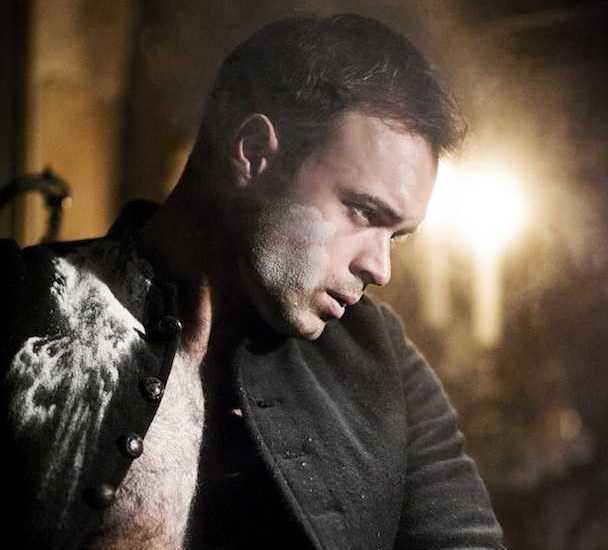The Libertine
This period piece poses questions about morality, addiction, hypocrisy which are still relevant today.
Overview
It is clear from the outset of The Libertine, playing at the Darlinghurst Theatre, what our opinion of the main protagonist, John Wilmott 2nd Earl of Rochester (Anthony Gooley), should be. “You will not like me”, he says to the audience at the start of the play, “Do not warm to me. What I require is not your affection, but your attention.” This reworking by Stephen Jeffreys of the restoration comedy, originally penned by the 16th century playwright George Shadwell, is set shortly after the restoration of King Charles II to the throne of England. Marking the end of more than a decade of strict puritan rule under Cromwell's republicans, it was a time of liberation and excess for those free to enjoy it, which appears to have been largely the aristocracy, actors and prostitutes. Though how free the latter really were, is open to debate.
The play centres around the downfall of the 2nd Earl of Rochester, John Wilmott, a highly intelligent man, brilliant satirist and possessed of a razor sharp wit. We follow him as he wines and whores his way across London with excessive abandon, all the while criticising the hypocrisy he sees around him. His long-suffering wife Elizabeth Malet (Susan Prior), for whom he seems to care little, is mostly left alone to look after their children in the country. It is only when he falls in love with the actress Elizabeth Barry (Danielle King), that his façade comes down a little, moved as he is by the passion and honesty of her acting. However, by this stage he is so set on his path of self-destruction, that he is destined to destroy this relationship too.
Nevertheless, it is hard not to warm to this lovable rogue a little. Even the King (Sean O’Shea) — also famous for his love of wine and women, and often target of Wilmott’s satire — banishes him from his court several times, only succumb to his charms and forgive him in the end. His wife, ultimately, also takes him back and nurses him when he returns to her, crippled with syphilis and seriously ill from years of alcohol abuse.
With almost Brechtian ploys, director Damien Ryan keeps the audience at a critical distance, whilst still retaining enough theatricality to evoke the spirit of the time. Strong performances from all the cast make this a captivating and highly entertaining play, which is raucous, rude and funny in large measure. The dialogue, which is contemporary enough to be easy to understand, still reflects the period well and is laden with wonderful profanities and expletives. Also an impressive original music score, composed by Sean Van Doornum, with a live cello on stage, provide an extra layer of depth to the whole experience.
This is a thought provoking piece of theatre which leaves you with a sense of having gained an insight, rather than just mere entertainment. The social commentary raises questions about infidelity, addiction, mental health and the often-displayed hypocrisy of our political leaders. Despite its historical setting, this play most definitely has relevance to our present day






